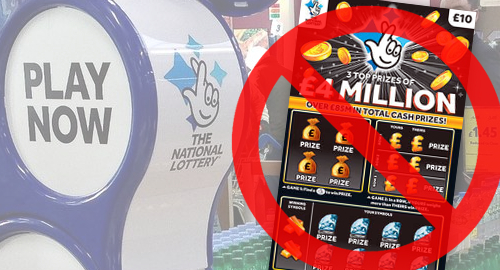 UK National Lottery operator Camelot has pulled its £10 scratchcard tickets from retail sales over concerns that the product encourages problem gambling activity.
UK National Lottery operator Camelot has pulled its £10 scratchcard tickets from retail sales over concerns that the product encourages problem gambling activity.
This weekend, The Sun reported that the Camelot Group had instructed its retail partners to withdraw the £10 scratchcards from circulation based on what the company called “player protection considerations.” Camelot’s highest price scratchcard available at UK retailers is now £5.
A Camelot spokesperson said that the company’s polling of its customers had made it aware that “unlike our other scratchcards, these [£10] games over-indexed among problem gamblers.” The company noted that while problem gambling rates were “very low” for lottery products, “player protection has always underpinned the way we run the National Lottery.”
The UK Gambling Commission (UKGC) issued a statement suggesting that the decision to curtail sales of the £10 cards wasn’t entirely Camelot’s to make. The UKGC said the “new evidence” indicated that the product’s association with problem gambling “was not consistent with it being a legitimate leisure activity.”
However, the UKGC allowed for the possible return of the product if “the risks posed to our duties are mitigated.” In the meantime, any winning £10 scratchcard tickets sold but not yet redeemed will still be honored, with players having 180 days following the games’ closure date in which to claim their winnings.
Camelot’s most recent annual report showed its scratchcards and online instant win games segment generated sales of £3.12b in the 12 months ending March 31, up £290m year-on-year and representing over 43% of total sales. Camelot doesn’t break down its sales figures to show how much each individual game contributes to its various segments.
The UK government recently closed a public consultation on whether to raise the minimum age for purchasing lottery products from its current 16 years to 18.
Camelot has endured a spate of negative publicity in recent months, including an ongoing public relations battle with a pair of lotto louts who were denied a jackpot that appears to have been purchased with a stolen debit card, as well as the conviction of a man who colluded with a Camelot staffer to falsely claim a £2.5m National Lottery prize.